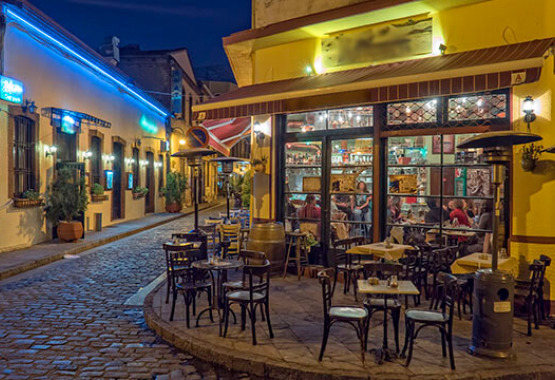Easter on Skiathos
Easter on the island of Alexandre Papadiamantis
Spending Easter on Skiathos, the island of “the saint of the Greek literature”, is definitely a spiritual experience, as the locals observe the monastery ritual of Mount Athos, and live the Passion Week in devoutness and deep contemplation. The sound of the funeral bells ringing, and the scents of the nature in blossom blend harmoniously in sweet melancholy. Visit the island and soak up this overwhelming and mystical atmosphere.
Maundy Thursday
In the morning, the Christians go to church to receive the body and blood of Jesus Christ in a symbolization of the Last Supper. Afterwards, the women return home to dye the eggs red and bake the Easter cookies and the Easter brioche (“tsoureki”), whereas the kids go around from house to house holding cane crosses adorned with rosemary, violets, roses, lilies and poppies, and singing Easter songs for tips.
Good Friday
People decorate the Epitaph, as the tradition wants the Crown of Thorns of Jesus Christ to be covered with flowers. On this day of bereavement, the devout Christians are supposed not to eat anything, or even greet one another; only kids are allowed to sing psalms in improvised choirs in the streets.
Contrary to the rest of Greece, the Epitaph Mass here will start at 01:00 and the circumambulation at 04:00. The litany will pass through the narrow streets of the town of Skiáthos, where the houses are all lit and people at the windows wait to see the procession approaching, lead by a man with a strong voice who recites the funeral psalms before the rest of the participants sing them.
At 05:30 the litany will have returned to the church and everybody will shout “Open the gates!”, while the senior priest will be shoving the gate of the church open in a representation of the descent of Jesus Christ to the Underworld.
Easter Saturday
At dawn, people return home from church to get some rest before going back for the First Resurrection service. This time the bells will ring in a joyous way to celebrate the victory of life over death, and the priests will hold palm tree leaves, i.e. symbols of victory and triumph, to sprinkle the Christians with holy water.
In the afternoon, religious rituals will smoothly let gastronomic desire prevail, as everyone focuses on the preparation of the Lucullian Easter meal.




